If Taro says コーヒーでも どうですか to you, which of the following is most likely? a. Taro wants to know…
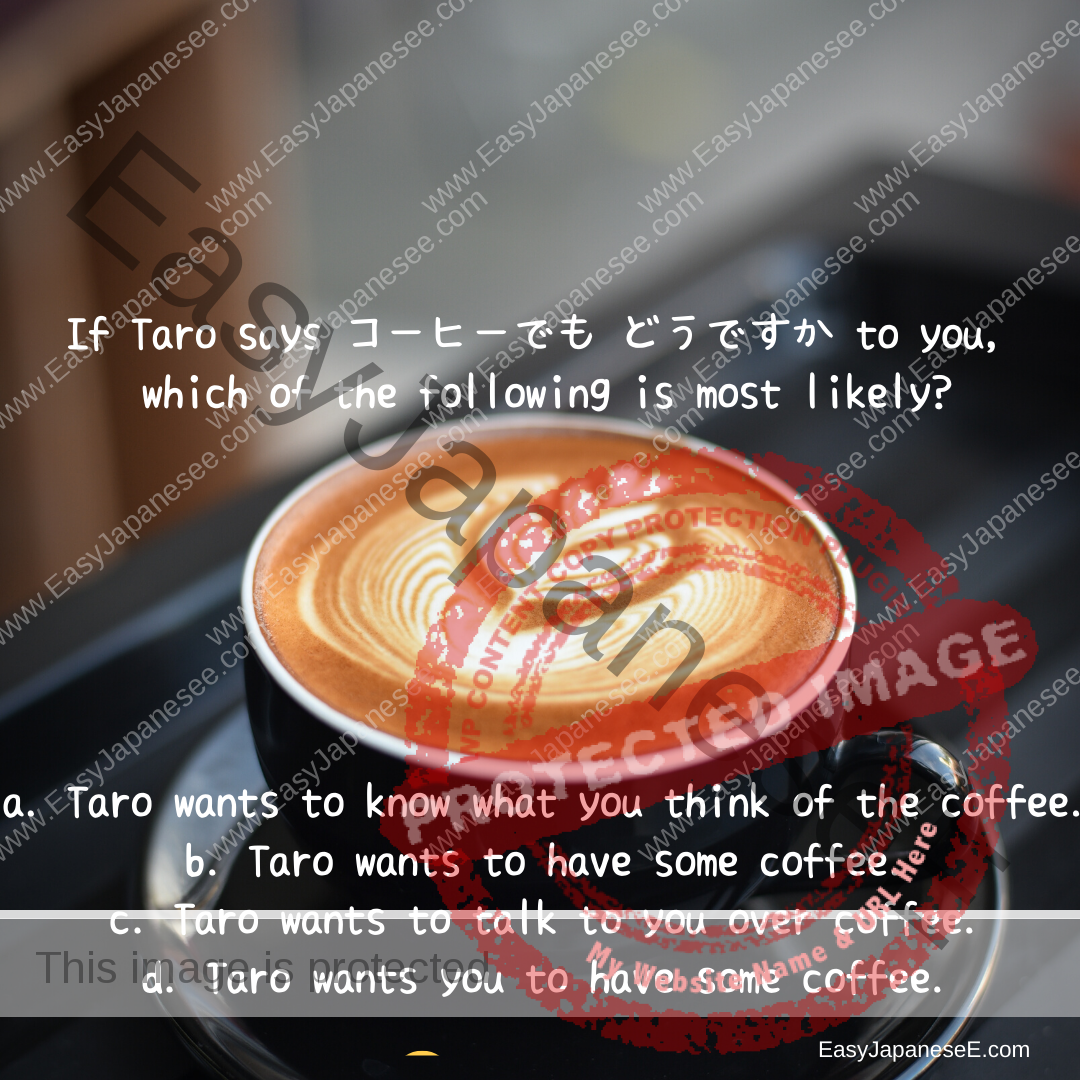

If Taro says コーヒーでも どうですか to you, which of the following is most likely? a. Taro wants to know…
Today’s topic is ~たら どうですか which is often translated as “Why don’t you ~? It is an expression when making…
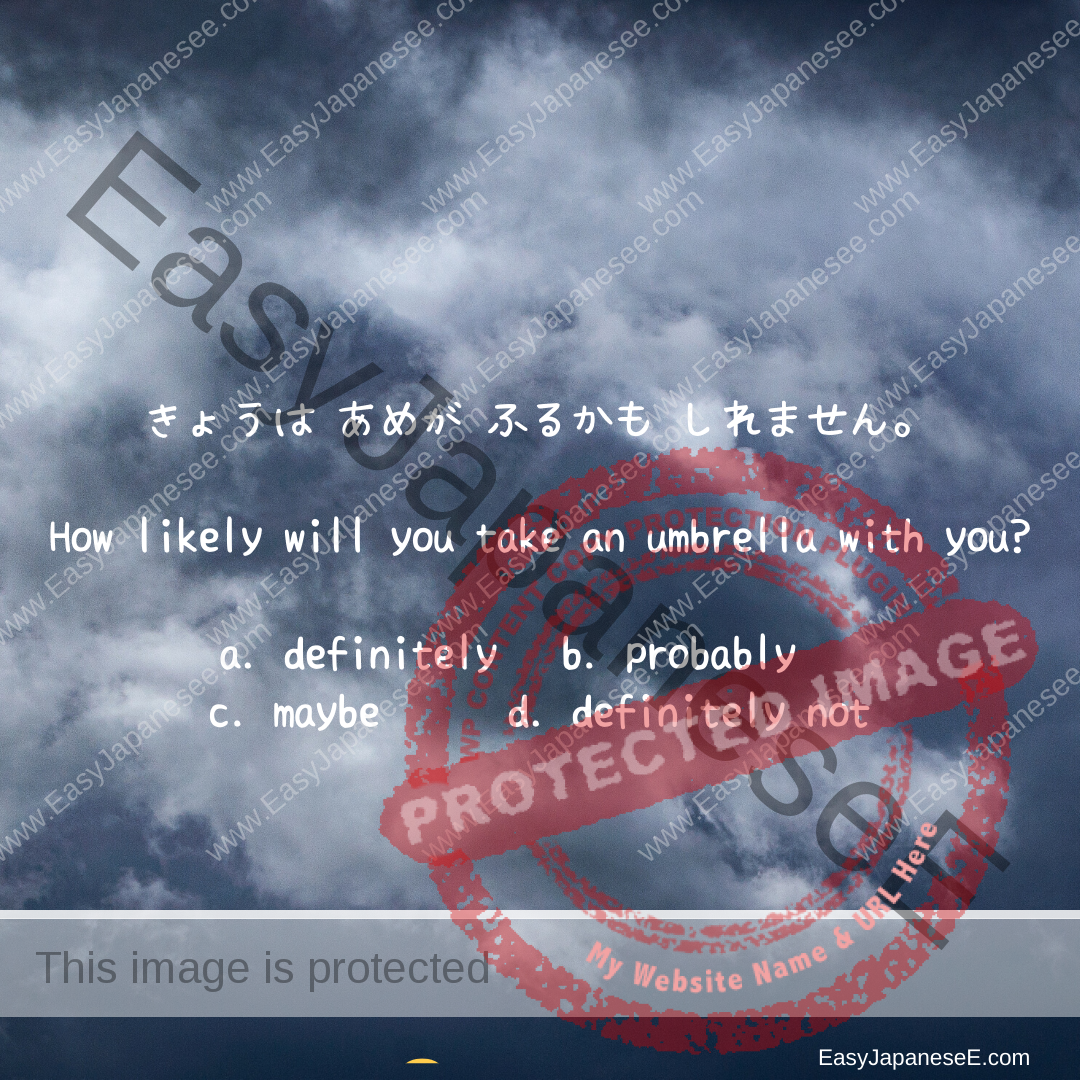
きょうは あめが ふるかも しれません。How likely will you take an umbrella with you?a. definately b. probably c. maybe d. definately not…
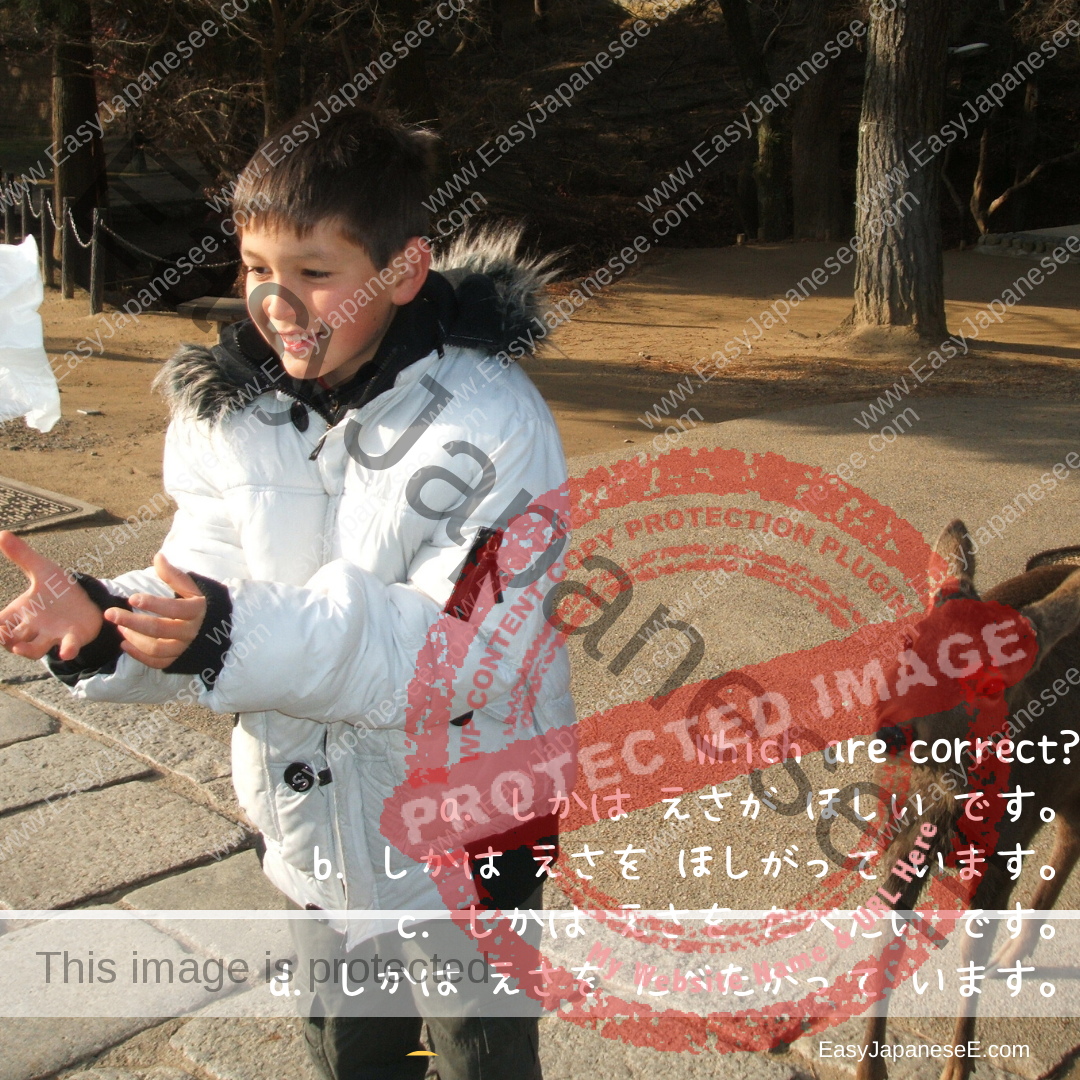
Which are correct?a. しかは えさが ほしい です。b. しかは えさを ほしがって います。c. しかは えさを たべたい です。 d. しかは えさを たべたがって…
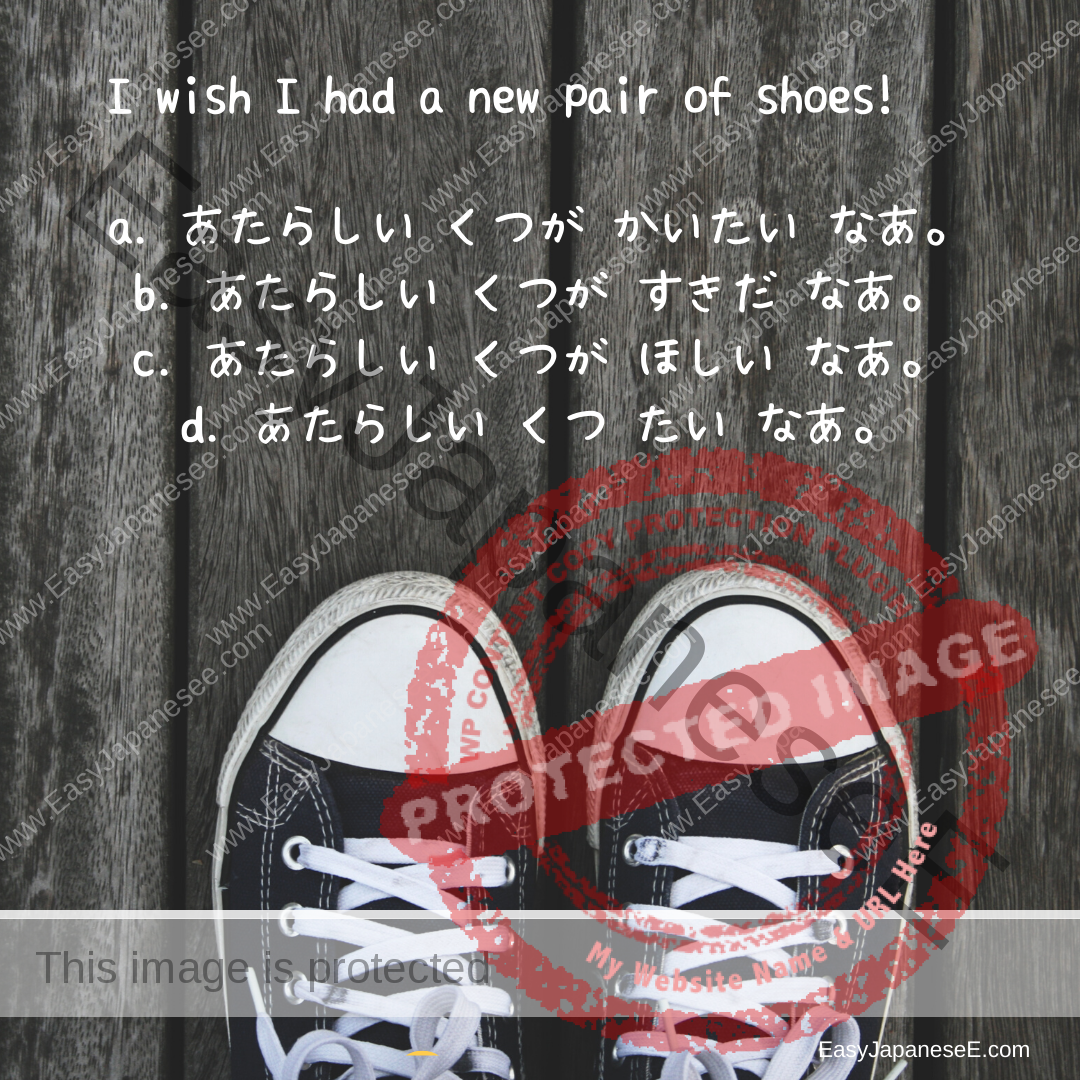
I wish I had a new pair of shoes! a. あたらしい くつが かいたい なあ。b. あたらしい くつが すきだ なあ。c. あたらしい くつが…
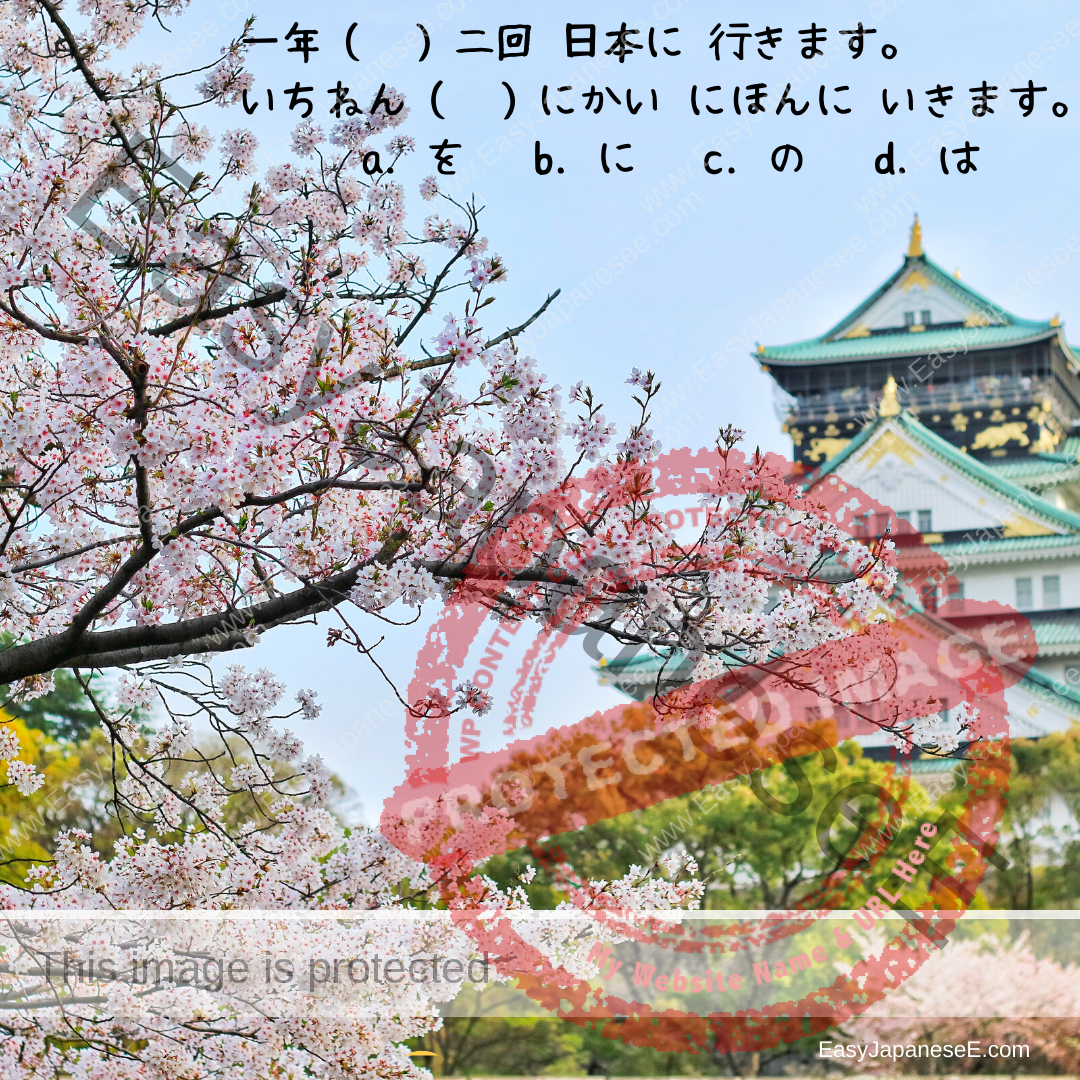
一年( )二回 日本に 行きます。a. で b. に c. の d. は The answer is b.に. When you want…
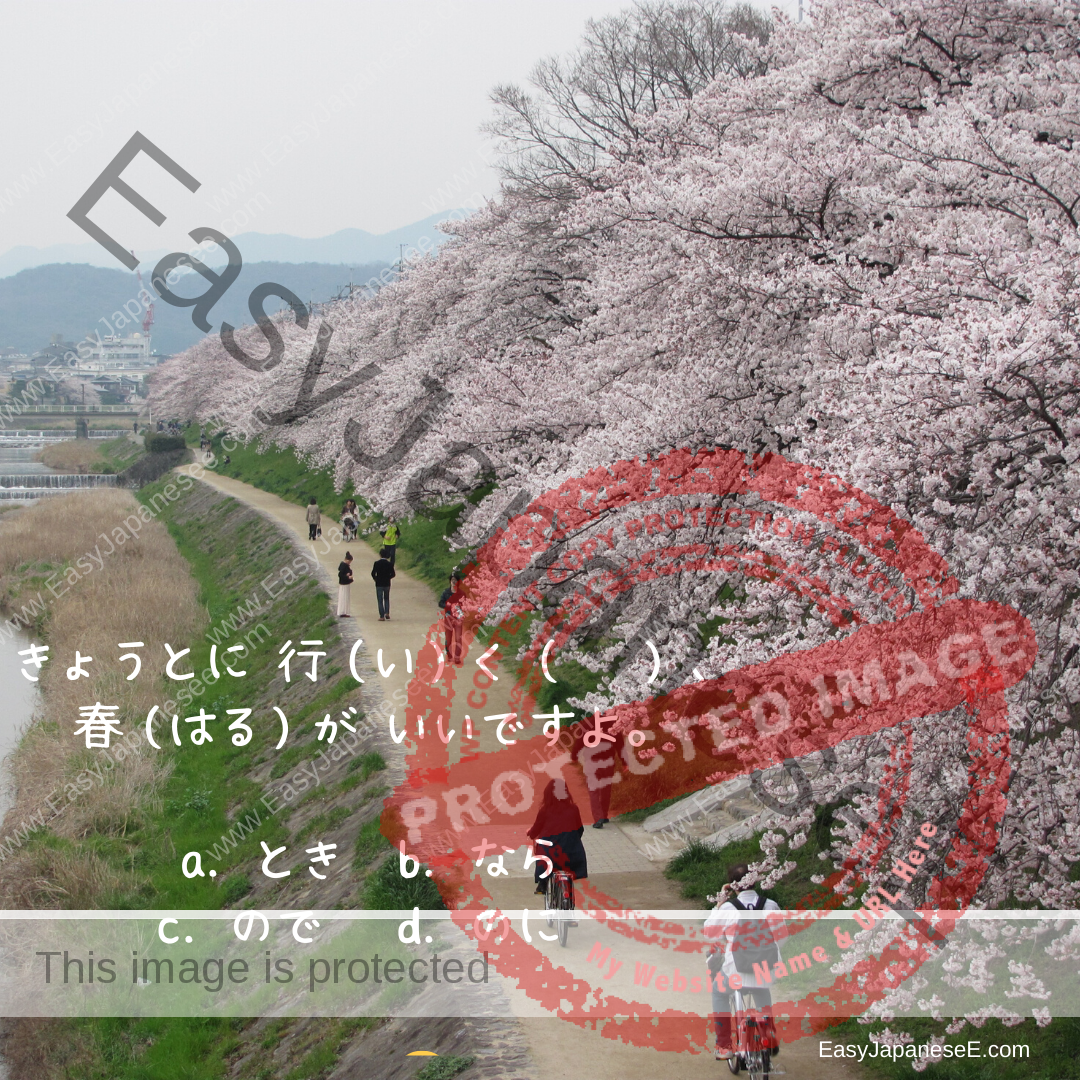
The question is:きょうとに 行(い)く(_)、春(はる)が いいですよ。 a. とき b. なら c. ので d. のに The answer is b. なら …
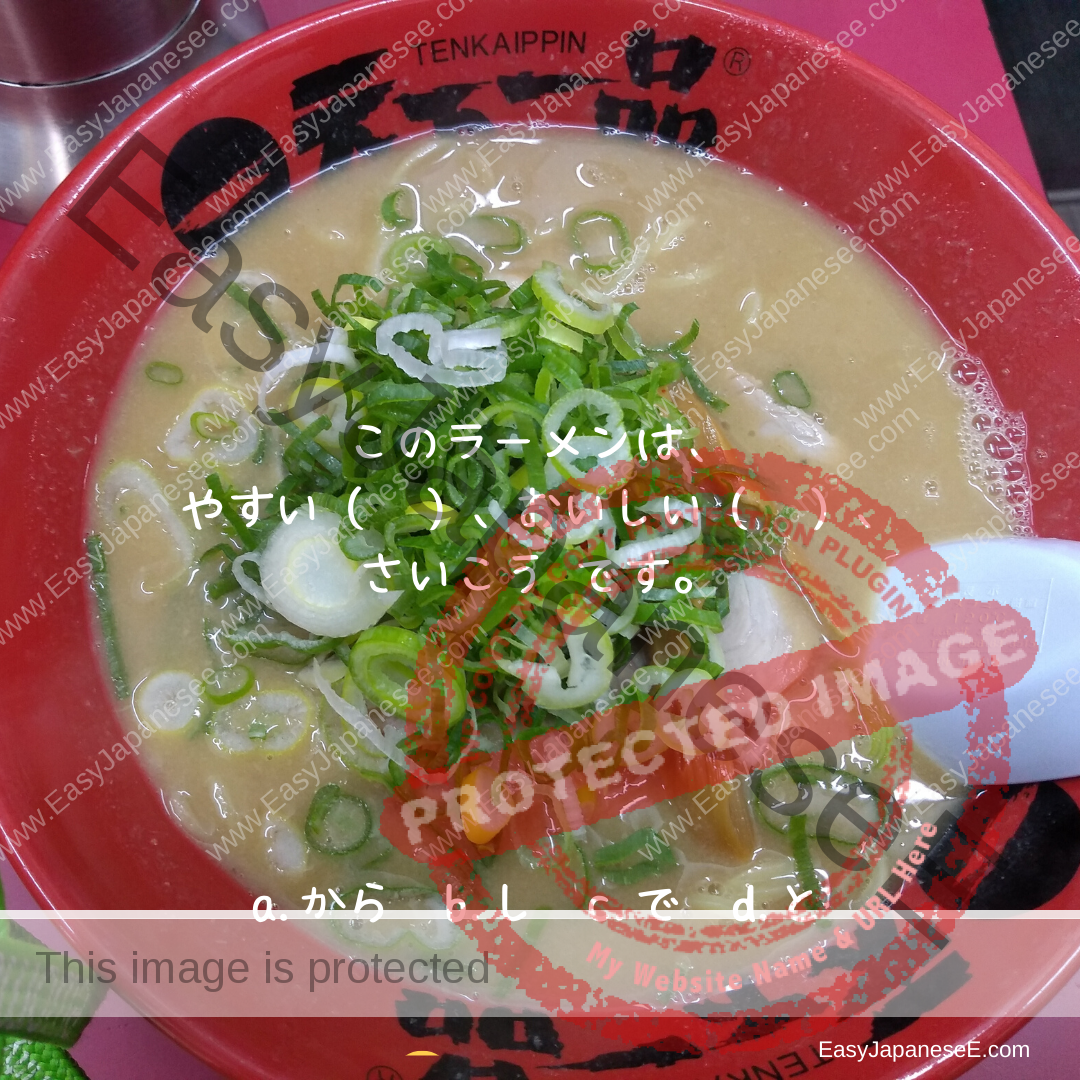
The question is: このラーメンはやすい( )、おいしい( )、最高(さいこう)です。 Both brackets take b. し*. ~し is often used to list up…
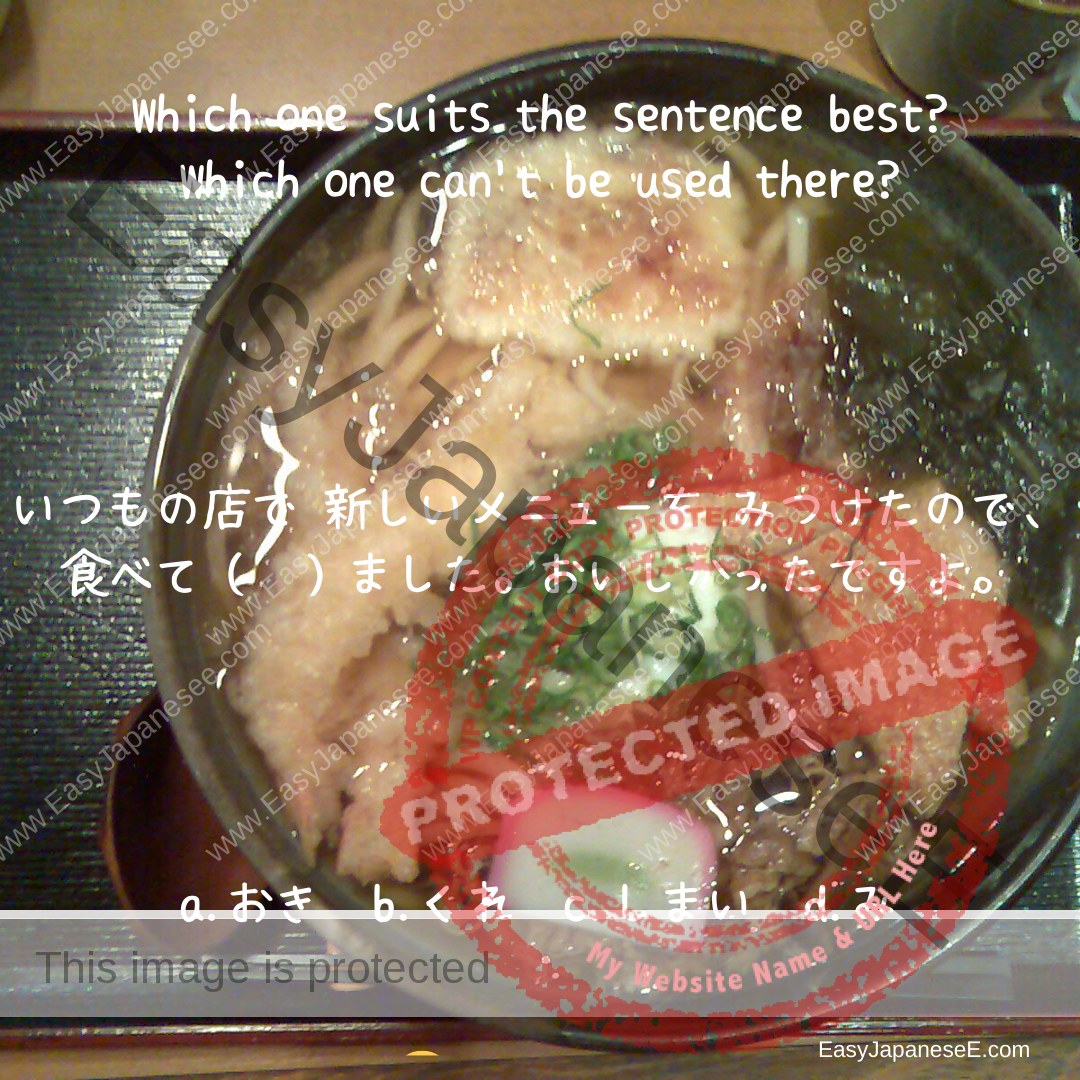
The most suitable answer is c.み and the word that cannot be used there is b.くれ. いつもの店で 新しいメニューを みつけたので、食べてみました。おいしかったですよ…
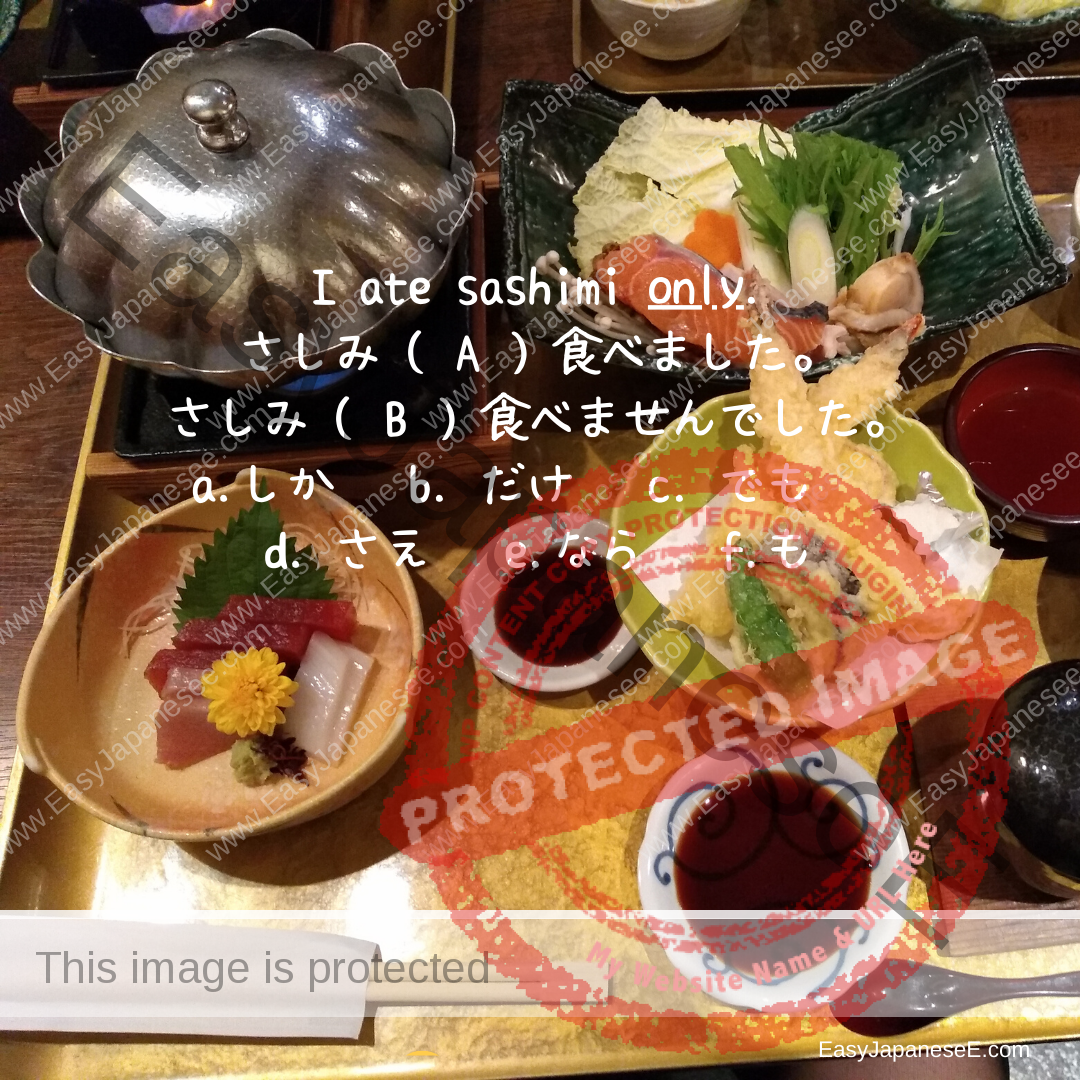
The correct answers are A – b. だけ and B – a.しか. In order to express the meaning of “only,”…
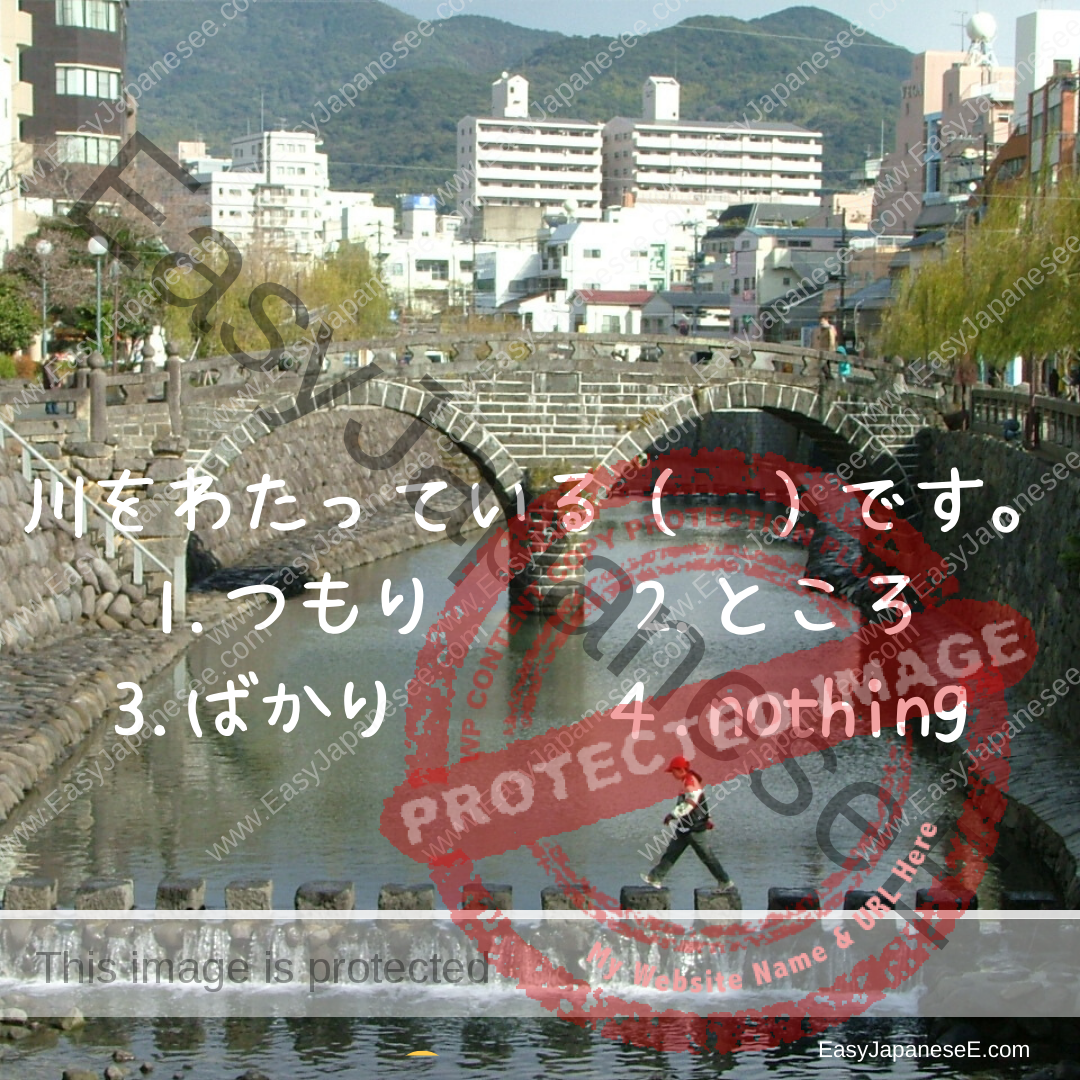
The correct answer is #2, ところ. ところ can be written in kanji, 所, and it usually means a “place” but…
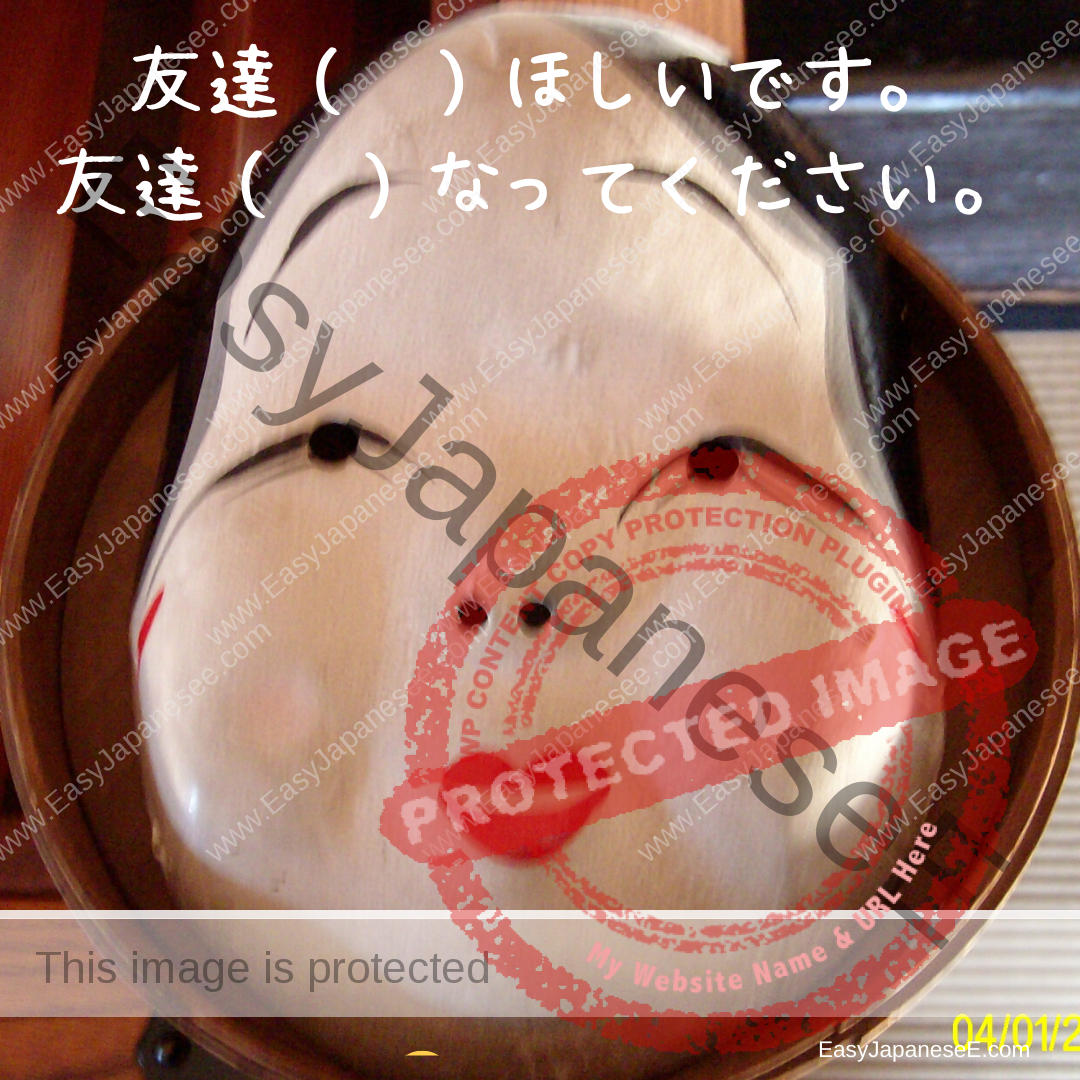
友達( )ほしいです。友達( )なってください。 I think a lot of people here want more friends (友達/ともだち). How do we say that in…
Last week, I talked about “や / ya” and I said it cannot be used to connect verbs. Today’s expression…
When you want to say “only” in Japanese, there are usually 2 different ways. There is only one person.…
On Monday this week, I talked about adding “も / mo” or “でも / demo” after a question word but…
What would you say if you are asked なっとうがすきですか (do you like nattou?)? If you like it, then you…
I said I will make this week a food week, so I have to find a grammar topic related to…
Last week, I talked about “easy to …” and “difficult to …” using a verb “stem.” Today’s expression is another…
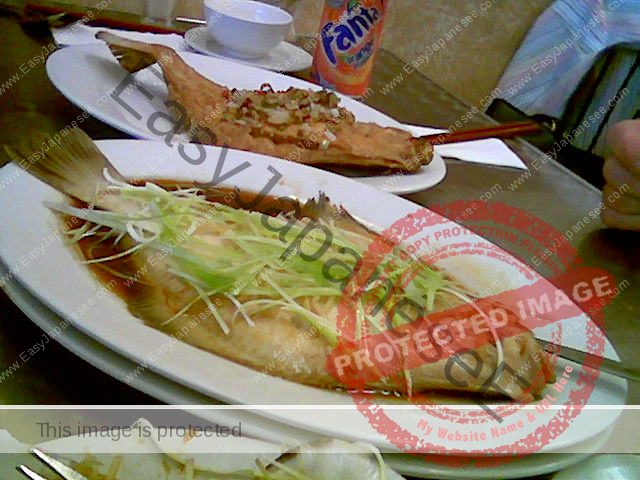
にくい is written as 難い and it means “difficult”, so the above sentence means “Fish is difficult to eat.”…
The above sentence says “it started to rain.” “Verb stem (polite form verb minus “ます”) + はじめます" means “start to…
